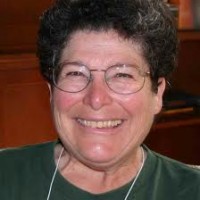Turning Inspiration into Action
A recent article called "Earthquake, Tsunami, and Nuclear Power in Japan," written by Karen Street has gotten a lot of attention over the past week. It is a well written and comprehensive look at how humanitarian issues interface with energy issues. Shortly after the article was published in Friends Journal, Street was contacted by a personal friend (and long-time nuclear opponent) with the question, "How do I get involved?"
This is a question that I have been asked in the past and I've struggled to come up with a solid response. Inspiring people to learn about energy issues is a huge step, but how do we turn that inspiration into action? If you are not tied to the nuclear industry by work, family, or friends, it can be difficult to actively show your support of this technology in your community. After all, nuclear energy falls into the category of subject matter that polite people tend to avoid, like politics and religion. It is the kind of thing that can create conflict and polarize relationships.
My best piece of advice, however, to a newly minted nuclear supporter is to be bold and talk about it. Talk about it every chance you get. Bring it up, even at the risk of creating or escalating a conflict.
Street's article reminded me that our energy policy is a dire situation that demands action. Dirty energy, as well as a lack of energy, is literally life threatening, a public health crisis in and of itself. And although nuclear supporters may not be as engaged in grass roots efforts as anti-nuclear supporters (at this point in time), it is important to explore our options for reaching the public.
After talking with several friends and mentors, I have some ideas to share for anyone wanting to support nuclear from within the industry, or from outside.
 Letter writing is something that nuclear supporters can engage in with only a small amount of organization and time, with the potential for major pay off. America is a democracy and we have the right and obligation to hold our policy makers accountable for their decisions about our energy future. For anyone looking to get involved, organizing a letter writing campaign to a local congressmen or senator would be a great first step. Approaching the local media and writing letters to the editor are also relatively easy ways to make a big impact.
Letter writing is something that nuclear supporters can engage in with only a small amount of organization and time, with the potential for major pay off. America is a democracy and we have the right and obligation to hold our policy makers accountable for their decisions about our energy future. For anyone looking to get involved, organizing a letter writing campaign to a local congressmen or senator would be a great first step. Approaching the local media and writing letters to the editor are also relatively easy ways to make a big impact.
Another method that recently proved successful for one of my directors was organizing a tour of a research reactor. He invited about a half a dozen anti-nuclear friends to the Reed Research Reactor in Portland. The reactor staff usually provides tours for student groups, but with some careful planning this group of non-students was able to get in. Many reactors provide tours regularly, or have visitor's centers that are open to the public. This kind of primary experience is very powerful in sharing accurate information about nuclear and garnering public support.
Click here for another story of a nuclear tourist who recently visited the Indian Point nuclear plant and suggests it for families, nuclear supporters and opponents alike.
Another good old-fashioned way to get involved is through volunteering. Call the schools in your community and connect them with nuclear energy experts or, better yet, go be a speaker. Even if you are not an expert, that doesn't mean you can't do some research and put together a PowerPoint presentation! Call the Rotary clubs, book clubs, join Toastmasters, and go talk about energy. It takes a lot of courage to put one's self out there in this way, but I have found it to be the single most effective way to reach the large portion of the population that isn't really sure what they think about nuclear energy.
As nuclear professionals, we need to inspire people to learn more, as well as to taking action. Thank you to Karen Street for bringing up this issue facing nuclear supporters outside of the industry, and helping me realize just how important it is. I'm guessing that we aren't the only ones who have faced this conundrum, and I hope that others will find these ideas helpful, and share their successes in getting folks involved.
________________________________
Suzy Hobbs is the executive director of PopAtomic Studios, a non-profit organization dedicated to using the power of visual and liberal arts to enrich the discussion on nuclear energy. Hobbs is an ANS member and a frequent contributor to ANS Nuclear Cafe.









